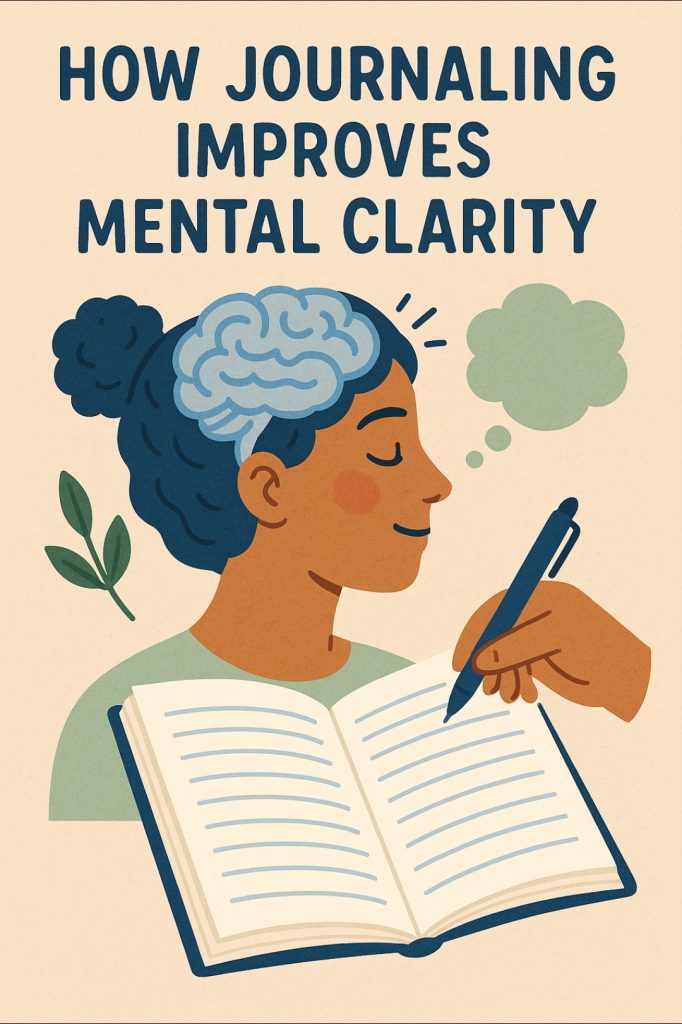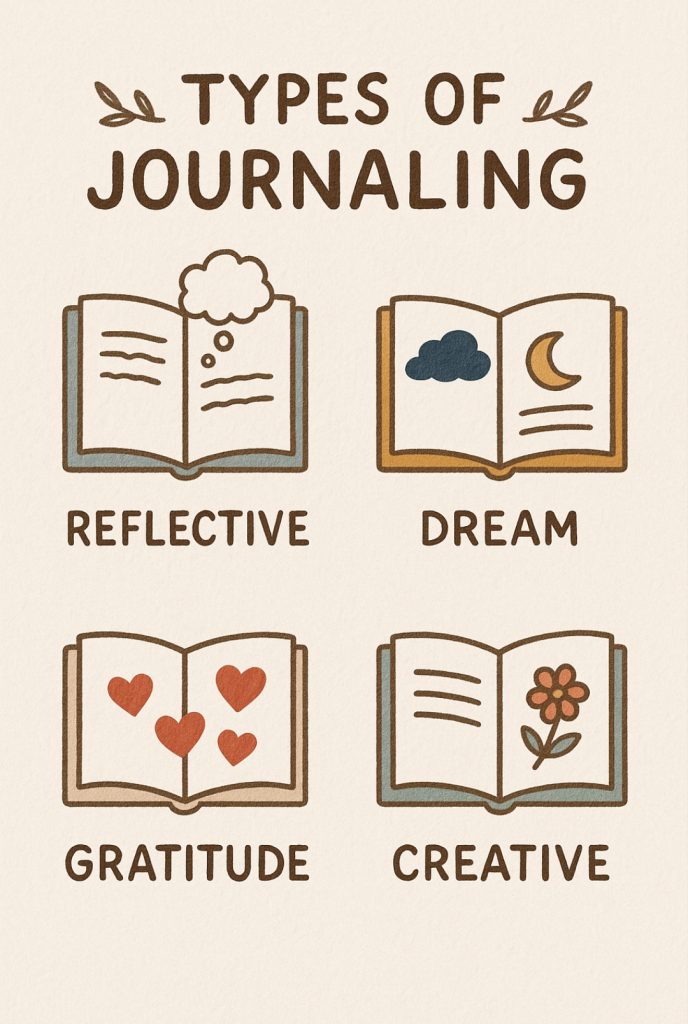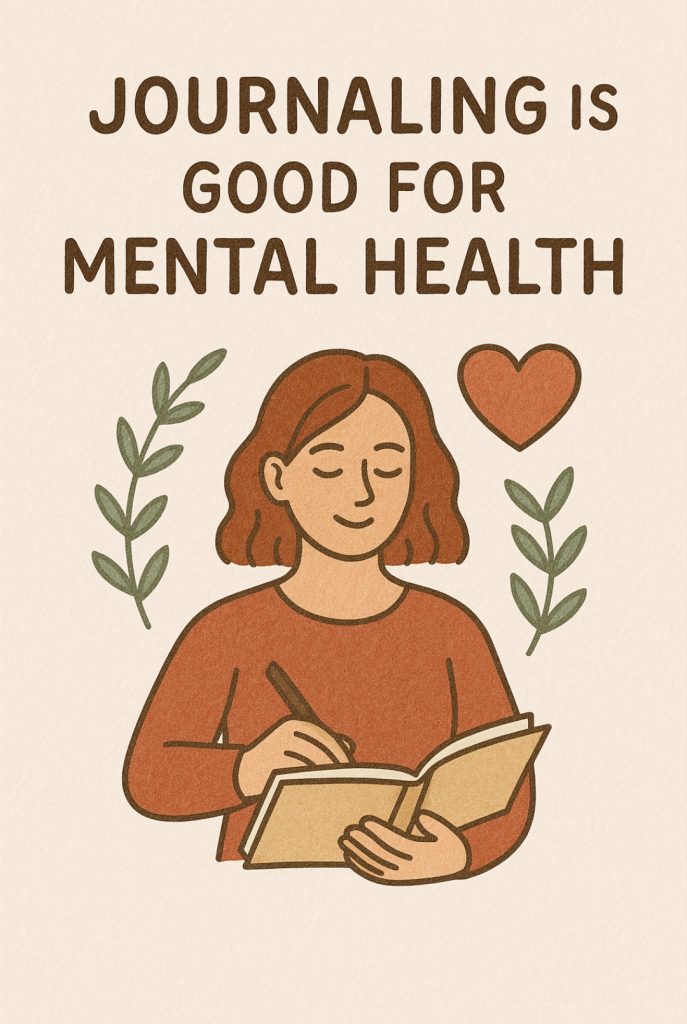Why is journaling important?
Our world today is filled with endless distractions such as endless notifications on social media, messaging apps, emails and news updates. Amidst this constant stimulation, taking time to process your thoughts and feelings through journaling is very important to achieve mental clarity.

Journaling is a practice that involves writing down your feelings, thoughts and reflections. According to research, journaling improves self-awareness, emotional processing and critical thinking skills. It is also widely used in the management of mental illness, with evidence supporting its effectiveness in reducing symptoms of anxiety, depression and Post Traumatic Stress Disorder (PTSD).
Effective journaling improves personal growth, self-reflection and goal-setting. This article explores the benefits of journaling and provides practical tips on how to start journaling.
Understanding Journaling Styles
There are different approaches to journaling. However, the two major forms used in psychotherapy are expressive writing and gratitude journaling. Here are some common types that you can explore:
- Expressive journaling: This type of writing allows you to focus on your emotions, opinions and feelings. It is usually written in the first-person perspective and involves description of emotions and sensory details. It is usually done in about 3-4 sessions of about 20 minutes each.
- Gratitude journaling: Gratitude journaling simply involves writing things you are grateful for in your life. It allows you to focus on positive situations, experiences, people or events that have shaped your journey or made you better in one way or the other.
- Prompt-based journaling: Prompt-based journaling is useful for beginners who may not know what to write about. This type of journaling uses questions which serve as prompts to stimulate your thought and writing.
- Travel journaling: This type of journaling is useful to keep memories of your travels including the places you visit, the foods you eat, the people you meet and unforgettable memories which you can reflect on after your journey.
Benefits of Journaling for Mental Health
- Stress reduction: If you are constantly undergoing stress, journaling is an effective strategy to prevent burnout and reduce the impact of stress on your physical and mental health. An improved self-awareness about your mental state may also encourage you to seek social support.
- Emotional processing: Writing about your feelings and experiences can help you uncover the depth of emotions and resolve trauma.
- Gratitude and positivity: Gratitude journaling helps redirect your attention to positivity rather than the things that are not working as intended or planned.
- Critical thinking: Journaling improves critical thinking skills. It also helps to articulate your thoughts clearly and uncover new insights when trying to solve problems.
- Self-awareness: Regular and consistent self-reflection is a feature of journaling. These reflections help you to assess your thoughts, behavioural patterns and personality objectively. It can also inspire behavioural change and personal growth.
- Therapy: Journaling is a form of therapy for anxiety and depression. It reduces the severity and frequency of symptoms and promotes recovery.
ALSO READ: Mental Health 101
Tips on Effective Journaling

If you are new to journaling, here are some tips on how to get the best our of your journaling:
- Choose a cool, quiet and peaceful location
- Choose a medium -notebook or a digital journaling app
- Start small and focus on writing.
- Use prompts to stimulate your thoughts
- Be open and honest with yourself
- Set a writing or journaling goal to achieve every week
- Explore different journaling styles
- Be consistent
Conclusion

Journaling is an effective tool to reflect and recalibrate whether you are going through a difficult time, healing from past hurts or seeking new habits. Consistent journaling can also improve your level of self-awareness and mental clarity.
Wondering where to start from? Begin your journey by incorporating journaling into your daily routine and sticking to it. With only a few minutes of focused writing daily, you can transform your emotional and mental health and maximize the benefits of journaling.









